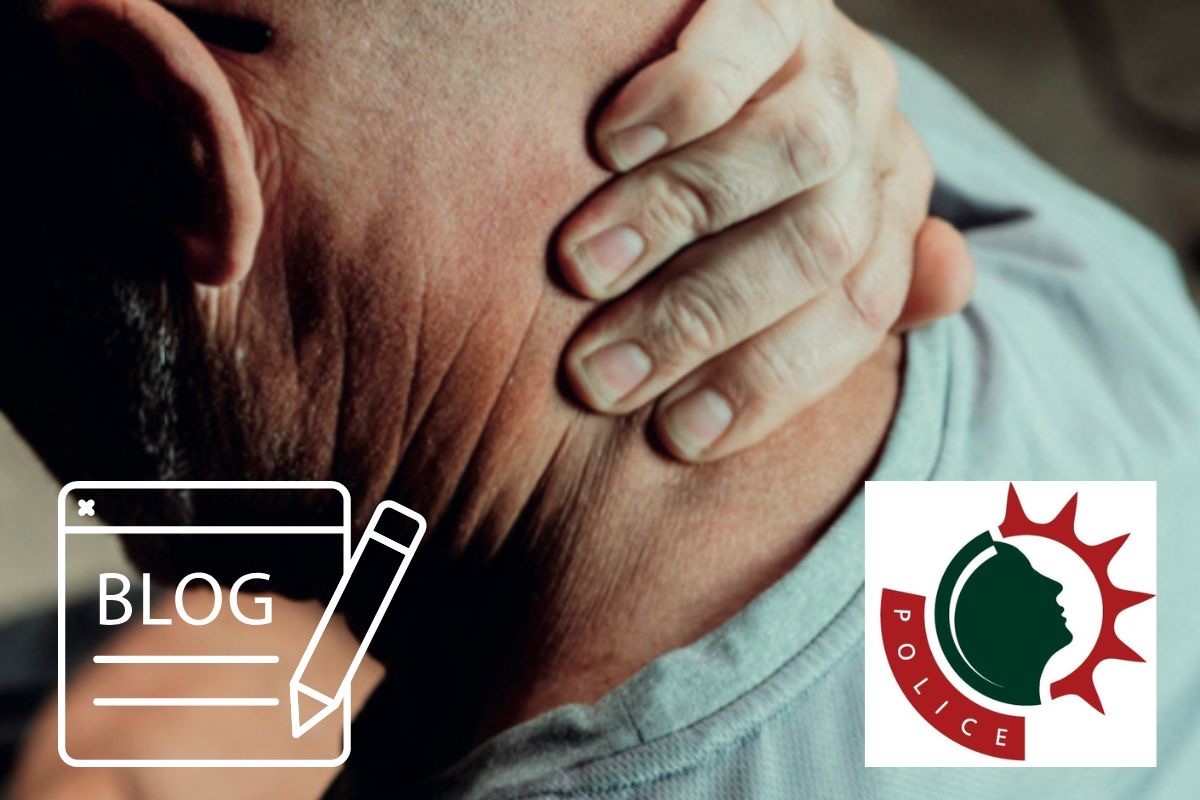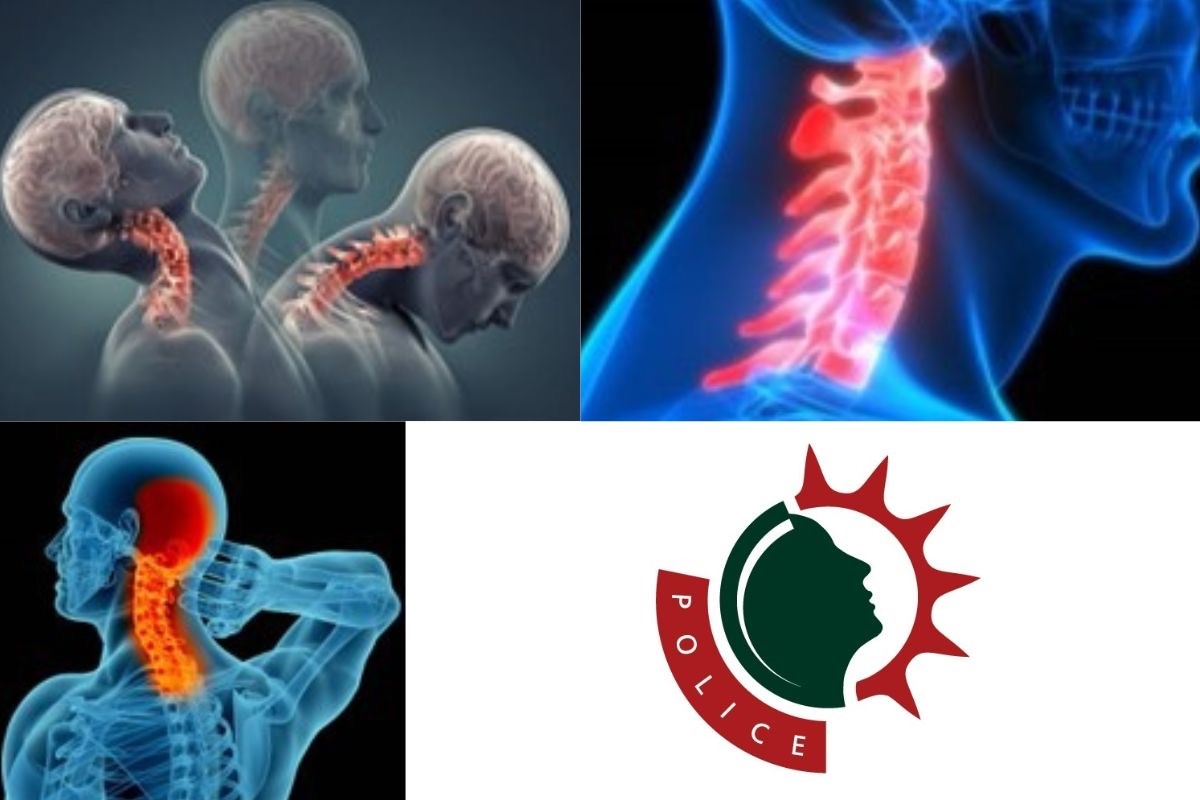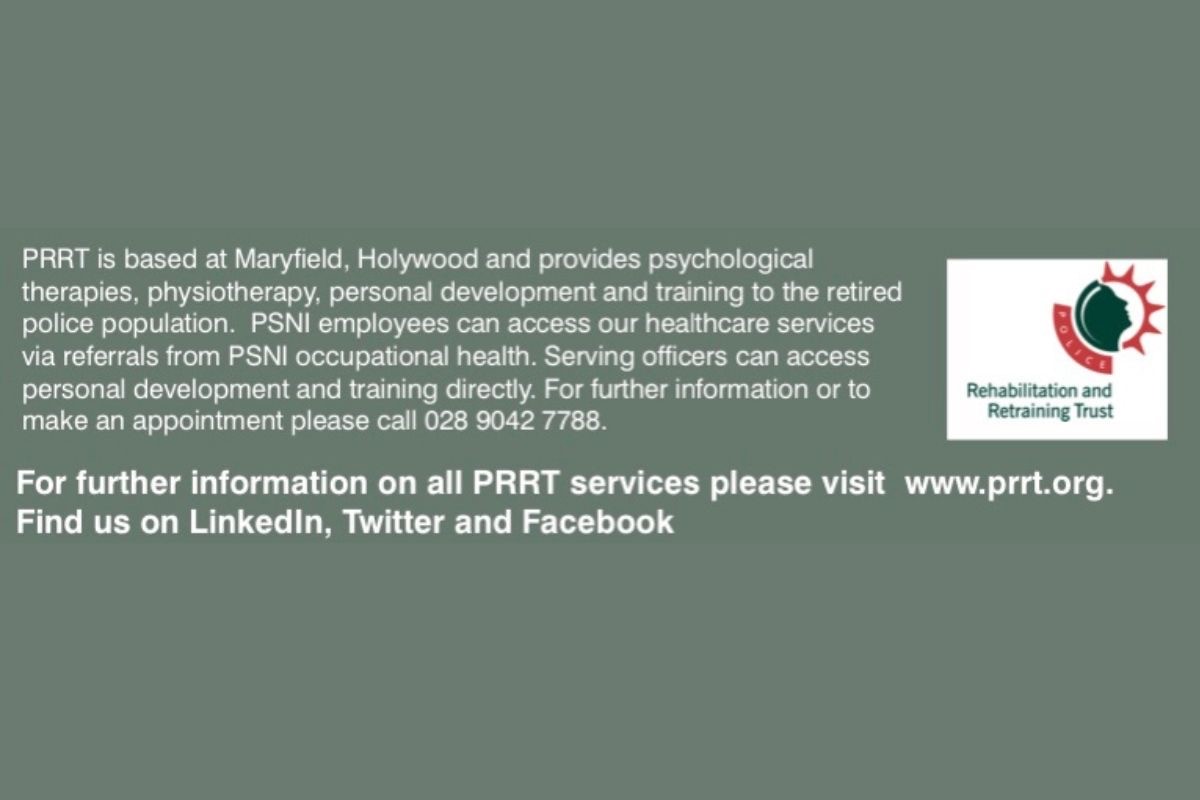
We are proud to work with organisations within our shared common bond "police family" in Northern Ireland. PRRT supports retired and retiring officers to create the future they want after policing. This includes physiotherapy assessments for neck pain and other conditions. Read their guest blog in full below.
A PAIN IN THE NECK?
It is reported that 2 in every 3 adults will experience neck pain at some point in their lives (Arthritis Research UK), which can lead to considerable pain, disability and economic cost. Prevalence increases with age, a study in 2017 found that it peaked at 45-49 in women and 50-54 in men (Global Burden of Disease).
Made up of a group of bones (vertebra) which extend from the base of your skull to your upper back, the neck or cervical spine as it is known in medical terms is a complex network of bones, joints, muscles, nerves, discs and blood supply.

In the majority of cases neck pain is not a serious condition and will resolve within a few days of onset. Understanding the potential causes of neck pain can be important in trying to prevent any re-occurrence. Remember, serious structural damage is rare and the most likely cause is a strain to the soft tissue or one of the small joints located at the side of your neck – the facet joints. The intervertebral discs are less commonly involved and the nerves even less so.
Causes of neck pain include:
-
Sedentary positions – prolonged periods sitting at a computer, driving or in a slouched position.
-
Sleeping in an awkward position
-
Repetitive movements that may lead to overuse of the neck’s muscles and ligaments.
-
Osteoarthritis – neck joints wear down with age causing the cushion (cartilage) between the bones to deteriorate and the development of bony spurs that cause pain and a restriction in movement.
-
Nerve compression- herniated discs or bone spurs in the vertebra or your neck can press on the nerves branching out from the spinal cord.
-
Trauma – fall, RTC, sports collision- a movement during which the neck is moved beyond it’s normal limited straining the soft tissues- commonly referred to as whiplash
Physiotherapists commonly get asked “Is my neck pain due to my bad posture?”.
There is Increasing evidence that poor posture is not the primary cause of neck pain but that it is related to our more sedentary lifestyle such as sitting at an office desk or watching TV for prolonged periods.
Useful tips that may help prevent onset of neck pain.
-
Try to maintain good posture when sitting
-
Take regular breaks from working.
-
Consider taking a brisk walk daily or during your lunch break.
-
Think about your workstation set-up
-
Exercise – regularly - By remaining active this has been shown to help – In most cases it doesn’t actually matter what type of activity you undertake. If symptoms persist a physiotherapist can prescribe more specific exercises that may be beneficial.
-
Perform relaxation techniques if you are prone to stress as this can help reduce tension across your neck and shoulders.
If your neck pain persists or keeps coming back over a period of several months or years it may be due to spinal degeneration or ‘wear and tear’ over time. This is a common issue known as cervical spondylosis and one that as it progresses can cause additional symptoms and functional restrictions. It is also a condition that physiotherapists can help you to try to manage.
In some cases, neck pain can indicate a more serious injury that will require medical assessment. Please seek medical advice if you experience:
-
Onset of severe pain after a traumatic event – e.g., RTC or fall
-
Your severe pain persists for several days with no relief.
-
You develop weakness or loss of feeling in your arms or legs
-
You experience pain down your arms or legs.
-
Your neck pain is accompanied by headaches.
Do you want help managing your neck pain?
Physiotherapists are highly skilled at assessing and treating people with neck pain. If you would like to request a physiotherapy assessment at PRRT for neck pain or any other condition, then retired officers can self-refer by contacting PRRT directly on 028 90427788. Serving officers can request a referral from their line manager through the Seapark Physiotherapy Scheme.




